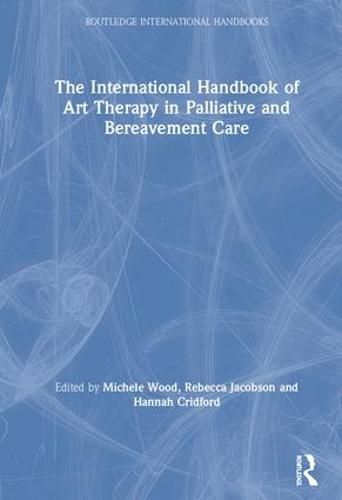Readings Newsletter
Become a Readings Member to make your shopping experience even easier.
Sign in or sign up for free!
You’re not far away from qualifying for FREE standard shipping within Australia
You’ve qualified for FREE standard shipping within Australia
The cart is loading…






The International Handbook of Art Therapy in Palliative and Bereavement Care offers a multicultural and international perspective on how art therapy can be of help to individuals, groups, families, communities, and nations facing death and dying as well as grief and loss.
Over 50 art therapists from around the world write about the transforming power of art therapy in the lives of those facing terminal illness, dementia, loss, and grief. They offer practical descriptions and techniques for working with adults and children to guide professionals, including those new to using art therapy and creative approaches in end-of-life care services.
This international handbook is essential reading for arts therapists, social workers, medical personnel, faith leaders, and psychologists interested in a collaborative and accessible approach to working with patients and families affected by loss.
$9.00 standard shipping within Australia
FREE standard shipping within Australia for orders over $100.00
Express & International shipping calculated at checkout
The International Handbook of Art Therapy in Palliative and Bereavement Care offers a multicultural and international perspective on how art therapy can be of help to individuals, groups, families, communities, and nations facing death and dying as well as grief and loss.
Over 50 art therapists from around the world write about the transforming power of art therapy in the lives of those facing terminal illness, dementia, loss, and grief. They offer practical descriptions and techniques for working with adults and children to guide professionals, including those new to using art therapy and creative approaches in end-of-life care services.
This international handbook is essential reading for arts therapists, social workers, medical personnel, faith leaders, and psychologists interested in a collaborative and accessible approach to working with patients and families affected by loss.